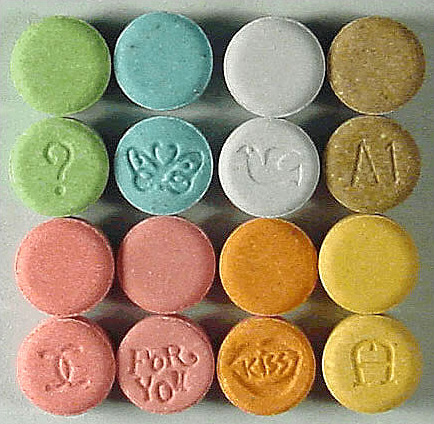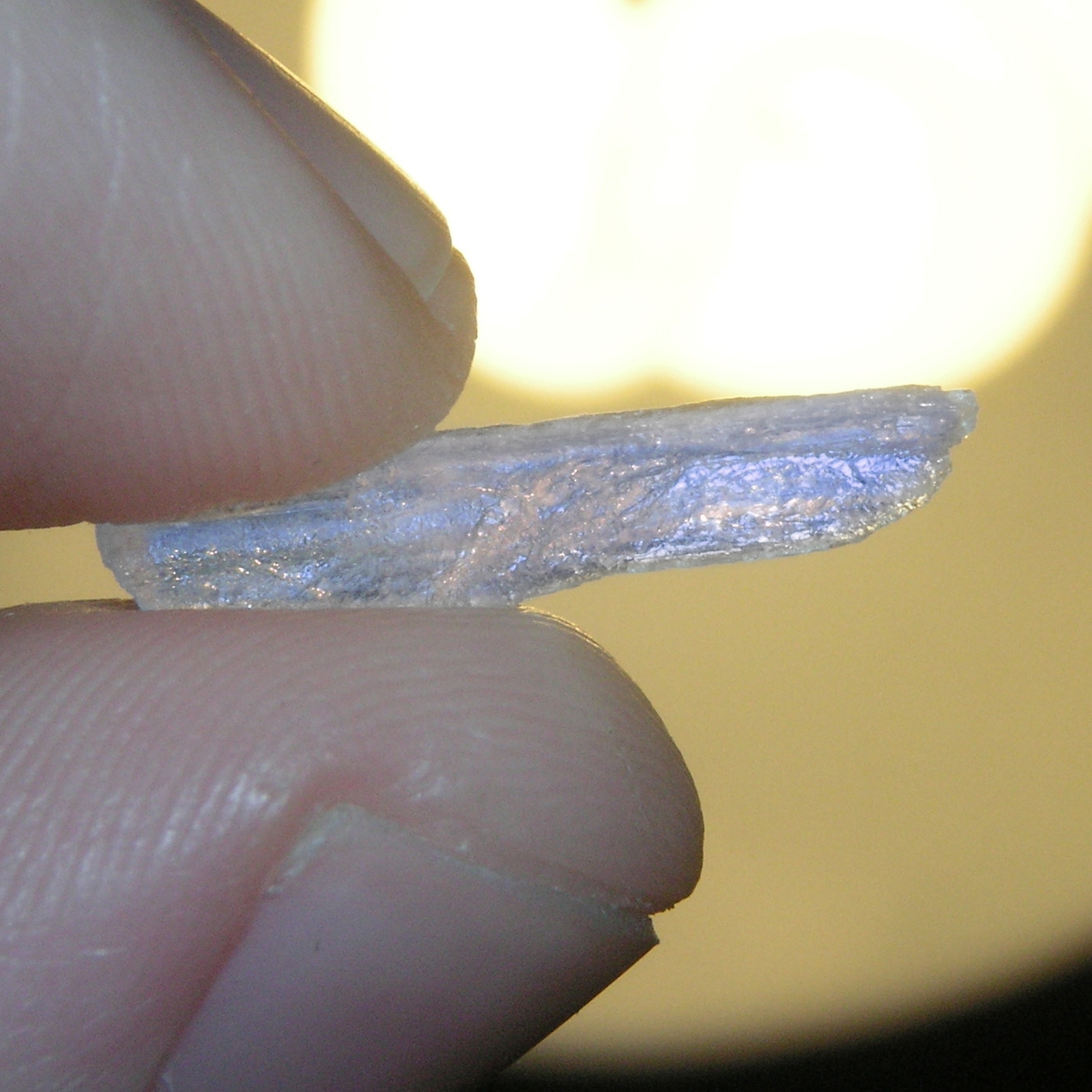June 19, 2019 | Jola Glotzer
Ecstasy versus Meth
CBC Scholar, Leah Mayo, explores potentially therapeutic and addictive properties of low doses of Ecstasy and Meth, respectively, in two recent publications in Neuropsychopharmacology and Psychopharmacology
Leah Mayo is a former CBC Scholar, Class of 2014 and subsequently renewed for 2015, who received her PhD in Neurobiology under the mentorship of Harriet de Wit at UChicago. Currently, Leah is a postdoctoral fellow at the Center for Social and Affective Neuroscience, Department of Clinical and Experimental Medicine, Linköping University, Linköping, Sweden.
While at UChicago, Mayo’s research interests focused on the relationships formed between environmental stimuli (cues) and drugs of abuse in healthy, non-dependent human volunteers. Two recent papers, co-authored by Mayo and de Wit, speak to the continuation and expansion of Mayo’s interests as a developing neuroscientist. The first paper, titled “Effects of MDMA on attention to positive social cues and pleasantness of affective touch,” was published in Neuropsychopharmacology at the end of April 2019. The second paper, first-authored by Mayo, came out at the beginning of this June in Psychopharmacology and is titled “Gender differences in the behavioral and subjective effects of methamphetamine in healthy humans.” Both papers assess the effects of low doses of addictive drugs such as Ecstasy and Meth on healthy human populations. Two findings of importance stand out: (1) a plausibility of using drugs (Ecstasy) in the treatment of psychiatric conditions such as post-traumatic stress disorder, and (2) a higher susceptibility of females to the addictive properties of Meth. de Wit is senior author on both publications.
The CBC congratulates Leah on her continued successes in the field of substance abuse and in understanding the concept of affect.
Publications linked to CBC funding*:
Bershad AK, Mayo LM, Van Hedger K, McGlone F, Walker SC, de Wit H. Effects of MDMA on attention to positive social cues and pleasantness of affective touch. Neuropsychopharmacology. 2019 Apr 30. [Epub ahead of print] (PubMed)
Mayo LM, Paul E, DeArcangelis J, Van Hedger K, de Wit H. Gender differences in the behavioral and subjective effects of methamphetamine in healthy humans. Psychopharmacology (Berl). 2019 Jun 5. [Epub ahead of print] (PubMed)
ABSTRACT
(Bershad et al.)

Ecstasy or Molly, chemically known as ±3,4-methylenedioxymethamphetamine (MDMA). (Source: Wikimedia Commons.)
The psychostimulant drug ±3,4-methylenedioxymethamphetamine (MDMA) reportedly produces distinctive feelings of empathy and closeness with others. MDMA increases social behavior in animal models and has shown promise in psychiatric disorders, such as autism spectrum disorder (ASD) and post-traumatic stress disorder (PTSD). How it produces these prosocial effects is not known. This behavioral and psychophysiological study examined the effects of MDMA, compared with the prototypical stimulant methamphetamine (MA), on two measures of social behavior in healthy young adults: (i) responses to socially relevant, “affective” touch, and (ii) visual attention to emotional faces. Men and women (N = 36) attended four sessions in which they received MDMA (0.75 or 1.5 mg/kg), MA (20 mg), or a placebo in randomized order under double-blind conditions. Responses to experienced and observed affective touch (i.e., being touched or watching others being touched) were assessed using facial electromyography (EMG), a proxy of affective state. Responses to emotional faces were assessed using electrooculography (EOG) in a measure of attentional bias. Subjective ratings were also included. We hypothesized that MDMA, but not MA, would enhance the ratings of pleasantness and psychophysiological responses to affective touch and increase attentional bias toward positive facial expressions. Consistent with this, we found that MDMA, but not MA, selectively enhanced ratings of pleasantness of experienced affective touch. Neither drug altered the ratings of pleasantness of observed touch. On the EOG measure of attentional bias, MDMA, but not MA, increased attention toward happy faces. These results provide new evidence that MDMA can enhance the experience of positive social interactions; in this case, pleasantness of physical touch and attentional bias toward positive facial expressions. The findings are consistent with evidence that the prosocial effects are unique to MDMA relative to another stimulant. Understanding the behavioral and neurobiological processes underlying the distinctive social effects of MDMA is a key step to developing the drug for psychiatric disorders.
ABSTRACT
(Mayo et al.)

Blue Crystal of Methamphetamine. (Source: Wikimedia Commons.)
RATIONALE:
Methamphetamine (MA) use is steadily increasing and thus constitutes a major public health concern. Women seem to be particularly vulnerable to developing MA use disorder, as they initiate use at a younger age and transition more quickly to problematic use. Initial drug responses may predict subsequent use, but little information exists on potential gender differences in the acute effects of MA prior to dependence.
OBJECTIVE:
We examined gender differences in the acute effects of MA on subjective mood and reward-related behavior in healthy, non-dependent humans.
METHODS:
Men (n = 44) and women (n = 29) completed 4 sessions in which they received placebo or MA under double-blind conditions twice each. During peak drug effect, participants completed the monetary incentive delay task to assess reaction times to cues signaling potential monetary losses or gains, in an effort to determine if MA would potentiate reward-motivated behavior. Cardiovascular and subjective drug effects were assessed throughout sessions.
RESULTS:
Overall, participants responded more quickly to cues predicting incentivized trials, particularly large-magnitude incentives, than to cues predicting no incentive. MA produced faster reaction times in women, but not in men. MA produced typical stimulant-like subjective and cardiovascular effects in all participants, but subjective ratings of vigor and (reduced) sedation were greater in women than in men.
CONCLUSIONS:
Women appear to be more sensitive to the psychomotor-related behavioral and subjective effects of MA. These findings provide initial insight into gender differences in acute effects of MA that may contribute to gender differences in problematic MA use.
Featured CBC Community member(s):
Leah Mayo, UChicago (currently at Linköping University, Sweden)
- *CBC Scholar Award (2014-2015):
▸ Meet the Scholar: Leah Mayo
PIs: Leah Mayo and Harriet de Wit (mentor; UChicago)

